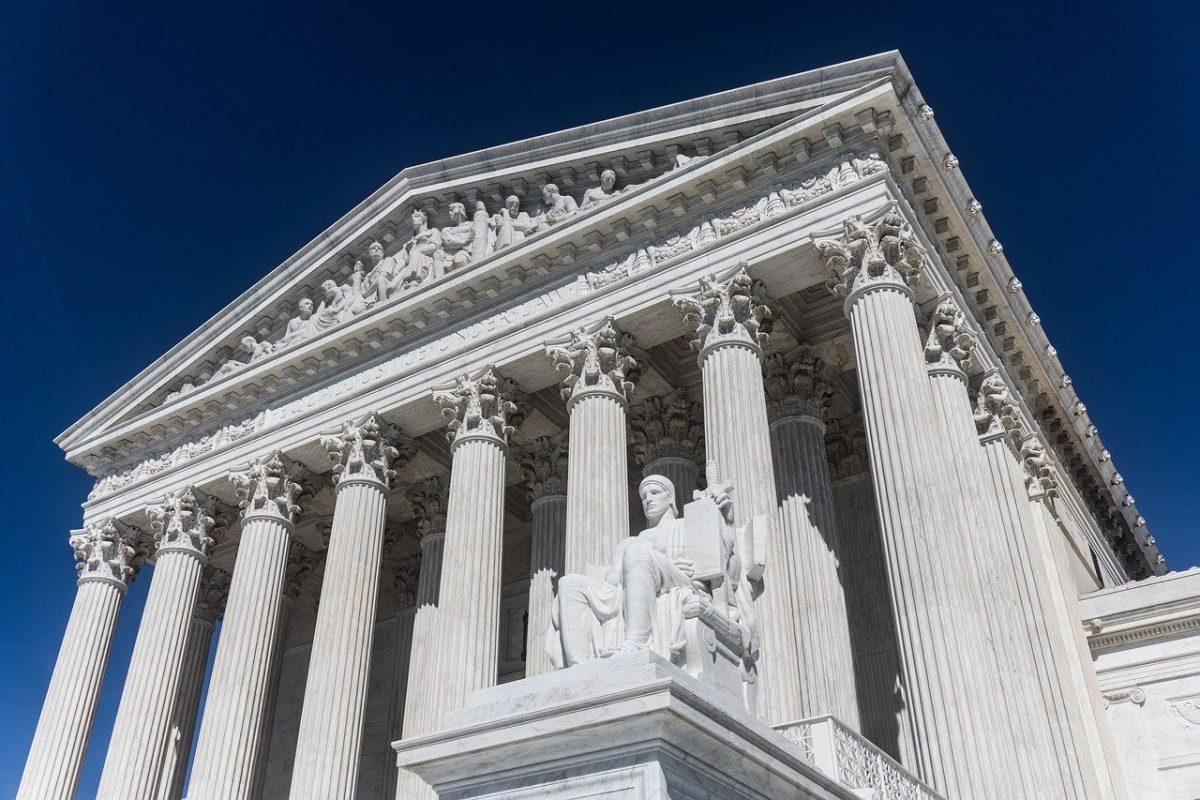Justice Stephen Breyer, the oldest serving member of the liberal wing of the Supreme Court, is stepping down at the end of the current Court term, allowing President Joe Biden and the Democrats a chance to nominate another liberal justice to the court, according to the justice’s speech at the White House last week.
Justice Breyer began his career on the court in 1994 after being nominated by then-President Bill Clinton. Today, he is the second-longest serving justice, only behind Clarence Thomas.
During his time on the nation’s highest judicial body, Breyer often took a back seat to the other justices on the bench, avoiding the spotlight and focusing solely on the issues of the cases before the court writing over 500 opinions, according to Ballotpedia. Justice Breyer brought a pragmatic approach to these cases, oftentimes attacking the idea of originalism as being too restrictive in how it can be used to interpret the law.
Breyer leaving the court has presented President Biden and Democrats with a golden opportunity to fill a Supreme Court seat, something which they crave after Republicans confirmed three right-wing justices to the court during President Trump’s time in office. President Biden has previously, and recently, promised that he will nominate a Black woman to the court.
“I’ve made no decision except one: the person I nominate will be someone with extraordinary qualifications, character, experience, and integrity,” President Biden said in a press conference last Thursday, Jan. 27. “And that person will be the first Black woman ever nominated to the United States Supreme Court. It’s long overdue.”
According to The Washington Post, some key names to watch in the search for a nominee include Ketanji Brown Jackson, a federal judge since 2013 who previously served as Vice-Chair of the powerful U.S. Sentencing Commission. Jackson seems to be the leading candidate. She holds her undergraduate and her J.D. from Harvard, served as a public defender, and was previously a law clerk for Justice Breyer. Leondra Kruger, currently a Justice of the California Supreme Court, has also been rumored to be one of the top names in consideration for the court.
While recent Supreme Court vacancies and nominations have been extremely contentious, senators on both sides of the aisle have been much more reserved in their discussions on a court nominee. Senate Minority Leader Mitch McConnell (R-KY), the top Republican in the chamber, has had a rather subdued reaction so far, as Republicans in the Senate have been mulling their options on how to respond to the vacancy, according to POLITICO.
“You can anticipate the Senate, the Republican minority, treating the nominee with respect and going through the process in a serious, thoughtful way,” Senator McConnell told reporters on Tuesday, Feb. 1.
Senator Dick Durbin (D-IL), chairman of the Senate Judiciary Committee, expressed optimism at a White House meeting between him, President Biden, and Senator Chuck Grassley (R-IA), a ranking member of the Judiciary Committee.
“I think there are certain Republican senators who may consider voting for a Biden nominee,” Senator Grassley said.
Some Republicans, however, are fully against any Biden nominee, not only due to their desire to keep the court conservative but also in opposition to what they perceive as “affirmative action” in the courts.
Senator John Kennedy (R-LA), a member of the Judiciary Committee, voiced his disagreement with any Biden nominee.
“Number one, I want a nominee who knows a law book from a J. Crew catalog, and number two, I want a nominee who’s not going to try to rewrite the Constitution every other Thursday to try to advance a ‘woke agenda,’” Senator Kennedy said, according to POLITICO.
Senator Ted Cruz (R-TX), also refused to support any nominee and took an interesting stance on Biden’s promise to nominate a Black woman, calling it “an insult to Black women.” Senator Roger Wicker (R-MS) said Biden’s pick would be a “beneficiary” of affirmative action, serving only to fill a “quota.”
Senator Susan Collins (R-ME), a potential swing vote on the nominee, offered a more complex answer when questioned on her feelings towards the president’s promise of a Black woman, opining that it puts Republicans, who have had significant trouble reaching out to Black voters, in a tough position.
“The idea that race and gender should be the number one and number two criteria is not as it should be,” Senator Collins said. “On the other hand, there are many qualified Black women for this post, and given that Democrats, regrettably, have had some success in trying to paint Republicans as anti-Black, it may make it more difficult to reject a Black jurist.”
For comments/questions about this story tweet @TheWhitOnline or email [email protected]
























































































































































!["Working with [Dr. Lynch] is always a learning experience for me. She is a treasure,” said Thomas. - Staff Writer / Kacie Scibilia](https://thewhitonline.com/wp-content/uploads/2025/04/choir-1-1200x694.jpg)











































